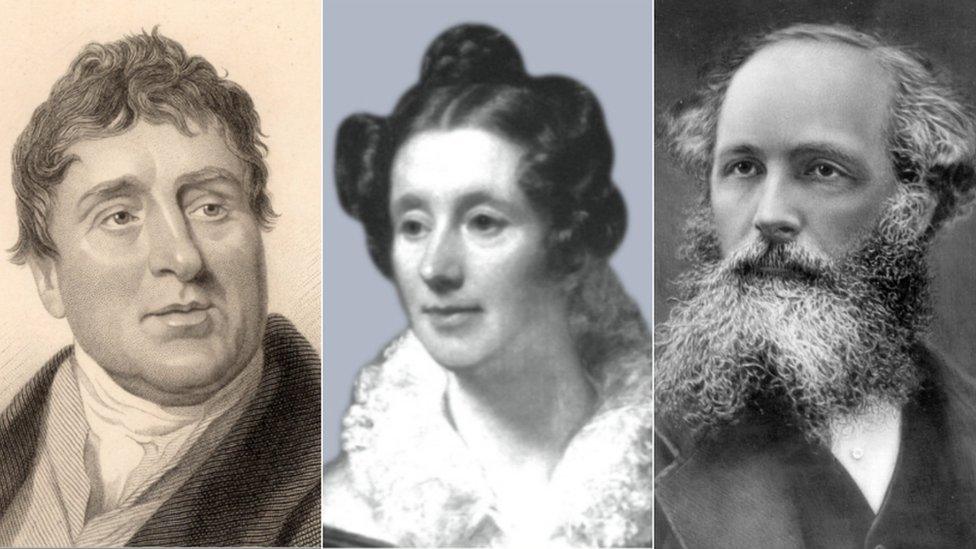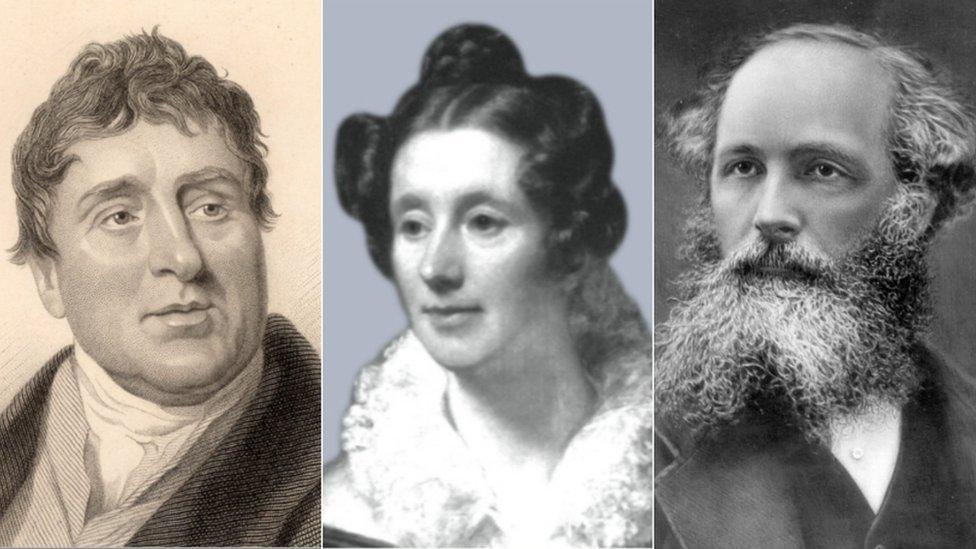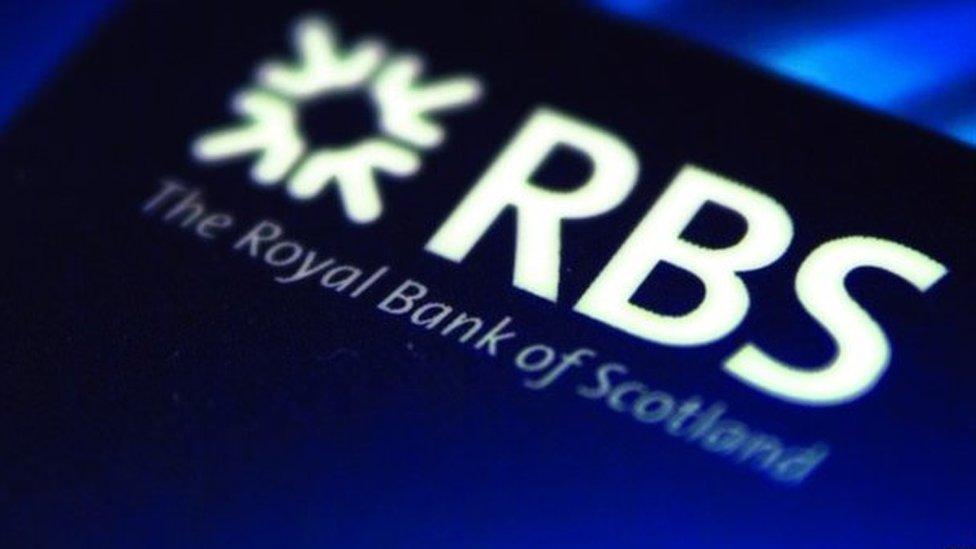Scientist Mary Somerville to appear on new RBS £10 note
- Published

Thomas Telford, Mary Somerville and James Clerk Maxwell were shortlisted
Scientist Mary Somerville will appear on the new Royal Bank of Scotland £10 note, the bank has announced.
The pioneering Scot was selected despite finishing second to Thomas Telford in a public vote.
Bank chiefs made the decision after concerns were raised about a flurry of last-minute votes for the engineer.
Somerville, who died in 1872, will feature on new polymer notes which are expected to be issued in the second half of 2017.
The Jedburgh-born woman was one of three historical figures in the running to appear on the notes.
An RBS spokesman said she was the clear favourite of voters during the most of the week-long poll, which was run on the bank's Facebook page.
However there was a sudden surge in activity on the final day of voting, which pushed Telford into first place.
It is understood that fewer than 1,000 votes separated the top two - but very few of Telford's votes were made in the UK.
'Worthy winners'
Physicist James Clerk Maxwell was in third place at the end of the poll.
Malcolm Buchanan, chairman of RBS's Scotland board, said he was overwhelmed by the response to the initiative.
"Having the opportunity to choose the face of our new £10 notes obviously meant a great deal to a great number of people," he added.
"Any of our final nominees would have been worthy winners and we wanted to make sure that our choice properly reflected the wishes of those who took part.
"Mary Somerville's immense contribution to science and her determination to succeed against all the odds clearly resonate as much today as they did during her lifetime."
Somerville made history when she was jointly nominated to be the first female member of the Royal Astronomical Society in 1835.
Her writing influenced James Clerk Maxwell and John Couch Adams, who later discovered Neptune.
- Published31 January 2016

- Published7 September 2015
